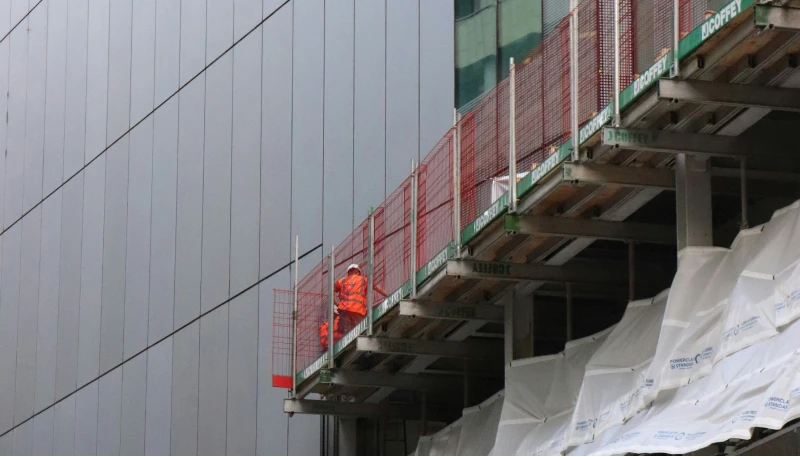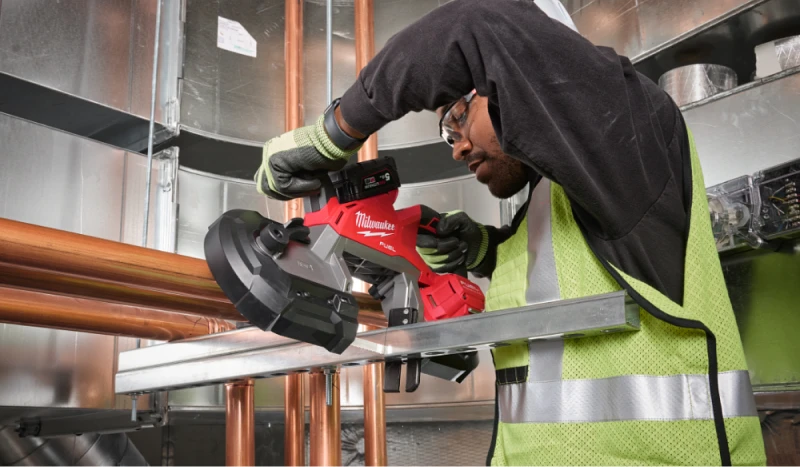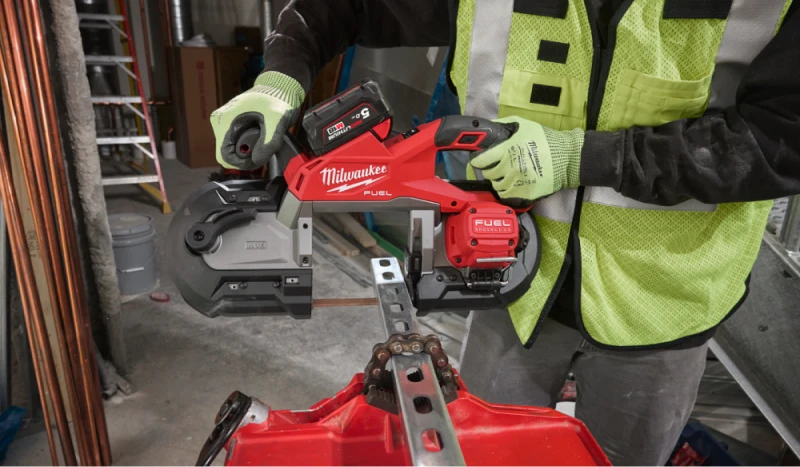Introduction
Building construction in Ghana has evolved significantly over the past decade, driven by economic growth, urbanization, and increasing demand for quality infrastructure. Whether you’re a real estate developer planning a commercial complex in Accra, a business owner expanding your facilities, or an individual building your dream home, understanding the construction landscape in Ghana is crucial for project success.
This comprehensive guide walks you through everything you need to know about building construction in Ghana—from initial planning and budgeting to regulatory compliance and quality assurance. By the end, you’ll have a clear roadmap for navigating your construction journey with confidence.
Understanding the Ghana Construction Market in 2025
Ghana’s construction sector continues to grow, fueled by infrastructure development, commercial real estate expansion, and residential housing demand. Key market characteristics include:
Economic Context The construction industry contributes approximately 8-10% to Ghana’s GDP, with both public and private sector investments driving growth. Accra and Kumasi remain primary construction hubs, though secondary cities like Takoradi, Tema, and Tamale are experiencing increased development activity.
Material Availability and Costs Construction materials in Ghana come from both local and imported sources. Cement, aggregates, and timber are largely locally produced, while specialized materials (advanced HVAC equipment, high-end finishes, certain steel products) often require importation, making them subject to currency fluctuations and import duties.
Labor Landscape Ghana has abundant construction labor, though skill levels vary significantly. Skilled trades (electricians, plumbers, specialized technicians) command premium rates and may be less available in rural areas. Quality control becomes paramount given this variability.
Phase 1: Planning and Design (2-4 Months)
Defining Project Scope Begin by clearly articulating your building’s purpose, size requirements, functional needs, aesthetic preferences, and budget parameters. Detailed upfront planning prevents costly changes during construction.
Site Selection and Assessment Location dramatically impacts construction feasibility and costs. Key considerations include:
- Soil Conditions: Ghana’s soil varies from rocky formations to expansive clays and sandy soils, each requiring different foundation approaches
- Topography: Sloped sites increase earthwork and foundation costs but may offer design advantages
- Access: Good road access reduces material delivery costs and construction timelines
- Utilities: Proximity to water, electricity, and sewage infrastructure affects connection costs
- Zoning: Ensure your intended use complies with local planning regulations
Professional Team Assembly Successful construction requires qualified professionals:
- Architect: Designs the building’s form, function, and aesthetics
- Structural Engineer: Ensures structural safety and designs foundation, frame, and load-bearing elements
- Mechanical/Electrical Engineer: Designs HVAC, plumbing, electrical, and fire protection systems
- Quantity Surveyor: Prepares cost estimates and manages project budgets
- Project Manager: Coordinates all stakeholders and oversees execution
Engage these professionals early—their input during planning saves money and prevents problems later.
Design Development The design phase typically progresses through stages:
- Conceptual Design: Initial ideas and spatial arrangements
- Schematic Design: Refined layouts with basic systems
- Design Development: Detailed specifications, materials, and systems
- Construction Documents: Complete drawings and specifications for contractor bidding and construction
To integrate the entire building lifecycle into a seamless platform to redefine how the world builds. Vel altera malorum ei. Eam at erat dicat vocent, vel et magna vitae principes, et sea dicit eripuit. Vincent
Phase 2: Regulatory Approvals (1-4 Months)
Required Permits and Approvals in Ghana
Building Permit All construction in Ghana requires building permits from the relevant Metropolitan, Municipal, or District Assembly (MMDA). Submit:
- Approved architectural and engineering drawings
- Site plan showing building location
- Structural calculations and specifications
- Proof of land ownership
- Application forms and fees
Processing typically takes 2-8 weeks in urban areas, longer in some jurisdictions.
Environmental Impact Assessment Projects exceeding certain thresholds (large commercial developments, industrial facilities) require environmental impact assessments from the Environmental Protection Agency (EPA). This process can take 2-4 months.
Utility Approvals
- Water Connection: Ghana Water Company approval for water supply
- Electricity: Electricity Company of Ghana (ECG) approval for power connection
- Fire Safety: Ghana National Fire Service approval for commercial and multi-family buildings
Specialized Approvals Certain building types require additional approvals:
- Hotels and restaurants: Tourism and health department approvals
- Healthcare facilities: Ministry of Health approvals
- Industrial facilities: EPA and sector-specific regulatory approvals
Timeline Management Start the approval process early and maintain regular follow-up with agencies. Incomplete documentation is the primary cause of delays. Working with experienced professionals familiar with Ghana’s regulatory environment streamlines this process significantly.
Phase 3: Contractor Selection (2-6 Weeks)
Bidding Process Most projects follow competitive bidding:
- Prepare Bid Documents: Complete construction drawings, specifications, and contract terms
- Contractor Prequalification: Evaluate contractors’ experience, financial capacity, and past performance
- Issue Bid Invitations: Provide complete documents to 3-5 qualified contractors
- Site Visits: Allow contractors to inspect the site and ask questions
- Bid Submission: Contractors submit sealed bids by deadline
- Bid Evaluation: Review bids for completeness, pricing, and approach
- Negotiation and Award: Clarify details and award contract to selected contractor
Evaluation Criteria Don’t simply select the lowest bidder. Consider:
- Price Reasonableness: Unrealistically low bids often indicate poor understanding or cutting corners
- Experience: Track record on similar projects
- Schedule: Realistic timeline that matches your needs
- Resources: Equipment, staff, and financial capacity
- References: Verification from past clients
- Contract Terms: Clear scope, payment terms, and warranties
Phase 4: Construction Execution (6-18+ Months)
Construction duration varies dramatically based on building size, complexity, and site conditions. A typical 3-story commercial building might require 12-15 months, while a small warehouse could complete in 6-8 months.
Major Construction Stages
Site Preparation (2-4 Weeks)
- Site clearing and leveling
- Temporary facilities setup
- Access road establishment
- Utility location and protection
Foundation Work (4-8 Weeks)
- Excavation
- Foundation construction (strip footings, raft, or piles depending on soil conditions)
- Backfilling and compaction
- Damp-proof membrane installation
Structural Frame (Varies by Building Height)
- Concrete frame construction (columns, beams, slabs)
- Masonry walls
- Roof structure
- Curing periods between concrete pours
Enclosure (6-12 Weeks)
- Exterior walls completion
- Window and door installation
- Roofing
- Waterproofing
Systems Installation (8-16 Weeks)
- Electrical wiring and fixtures
- Plumbing systems
- HVAC installation
- Fire protection systems
- Often overlaps with other phases
Interior Finishes (6-10 Weeks)
- Plastering and painting
- Flooring installation
- Ceiling finishes
- Fixture installation
- Millwork and cabinetry
Site Works (4-6 Weeks)
- Paving and landscaping
- Drainage systems
- Boundary walls
- Signage
Commissioning and Testing (2-4 Weeks)
- System testing and balancing
- Punch list completion
- Final inspections
- Certificate of occupancy
Quality Control During Construction Maintaining quality requires vigilance:
- Regular site inspections by qualified engineers
- Material testing (concrete strength tests, soil compaction tests)
- Verification of proper construction methods
- Documentation of work stages with photographs
- Prompt correction of deficiencies before work proceeds



Understanding Construction Costs in Ghana (2025)
Cost Ranges by Building Type
All costs are approximate and subject to variation based on specifications, finishes, and site conditions.
Residential Construction
- Basic residential (modest finishes): GHS 2,500-3,500/sqm
- Standard residential (mid-range finishes): GHS 3,500-5,000/sqm
- High-end residential (premium finishes): GHS 5,000-8,000+/sqm
Commercial Construction
- Warehouse/industrial (basic): GHS 2,000-3,000/sqm
- Office building (standard): GHS 3,500-5,500/sqm
- Retail/shopping center: GHS 4,000-6,000/sqm
- Hotel/hospitality: GHS 5,000-8,000+/sqm
Cost Components Typical cost breakdown for commercial construction:
- Structural work: 30-35%
- Architectural finishes: 25-30%
- Mechanical/electrical systems: 20-25%
- External works: 5-10%
- Professional fees: 8-12%
- Contingency: 5-10%
Factors Affecting Costs
- Building height: Multi-story buildings cost more per sqm due to structural and access requirements
- Site conditions: Poor soil, slopes, or difficult access increase costs
- Finishes quality: Material selection dramatically impacts final costs
- Systems complexity: Advanced HVAC, smart building features, or specialized equipment increase costs
- Timeline: Accelerated schedules typically add 10-20% to costs
- Market conditions: Material prices fluctuate based on cement, steel, and fuel costs
Common Construction Challenges in Ghana (And How to Address Them)
Challenge 1: Inconsistent Material Quality Solution: Purchase materials from reputable suppliers, conduct testing on critical materials (cement, reinforcement steel), and maintain quality control through professional oversight.
Challenge 2: Skilled Labor Shortages Solution: Engage experienced contractors with proven track records, allow adequate time for specialized work, and consider training programs for site workers.
Challenge 3: Weather-Related Delays Solution: Plan construction schedules accounting for Ghana’s rainy seasons (April-June, September-October), protect materials from weather damage, and maintain drainage during construction.
Challenge 4: Utility Coordination Solution: Engage utility companies early in the project, allow sufficient time for connections, and consider backup systems (generators, water storage) if primary utilities are unreliable.
Challenge 5: Regulatory Delays Solution: Submit complete, accurate documentation, maintain proactive follow-up with regulatory agencies, and work with professionals experienced in Ghana’s approval processes.
Challenge 6: Cash Flow Management Solution: Establish realistic payment schedules, maintain contingency funds, and stage payments to align with work completion milestones.
Sustainable Building Practices in Ghana
Modern construction increasingly emphasizes sustainability—both for environmental responsibility and operational cost reduction.
Energy Efficiency
- Proper building orientation to minimize solar heat gain
- High-performance insulation in walls and roofs
- Energy-efficient windows with low-E coatings or solar control glass
- LED lighting throughout
- High-efficiency HVAC systems with variable speed drives
- Solar panels for electricity generation (increasingly cost-effective in Ghana)
Water Conservation
- Low-flow plumbing fixtures
- Rainwater harvesting systems
- Water-efficient landscaping with native plants
- Greywater recycling where appropriate
Material Sustainability
- Locally-sourced materials to reduce transportation impact
- Recycled content materials where available
- Durable materials requiring less frequent replacement
- Low-VOC paints and finishes for healthier indoor air
Waste Management
- Construction waste sorting and recycling
- Material efficiency in design to minimize waste
- Reuse of excavated soil for landscaping
Sustainable buildings in Ghana typically achieve 20-40% energy savings compared to conventional construction, with payback periods of 3-7 years through reduced utility costs.
Working with Professional Engineering Services
Why Professional Engineering Matters Ghana has many construction practitioners, but not all possess proper qualifications. Professional engineering services provide:
- Technical Expertise: Proper design ensuring safety, performance, and code compliance
- Risk Mitigation: Identifying and addressing potential problems before they become costly failures
- Quality Assurance: Oversight ensuring construction matches design intent and specifications
- Regulatory Navigation: Managing permit processes and ensuring approvals
- Cost Control: Accurate budgets and value engineering to optimize project costs
- Project Coordination: Managing multiple contractors and disciplines for seamless execution
Selecting Engineering Partners Look for:
- Qualified professionals with relevant degrees and professional registrations (GhIE members)
- Demonstrated experience on similar project types
- Strong references from past clients
- Clear communication and responsiveness
- Transparent fee structures and scope of services
- Professional indemnity insurance
Fee Expectations Professional fees for complete architectural and engineering services typically range 8-15% of construction costs, varying based on project complexity. This investment protects the much larger construction investment and dramatically increases success likelihood.
Timeline Expectations
Small Projects (Single-family home, small commercial building <500 sqm)
- Design: 2-3 months
- Approvals: 1-2 months
- Construction: 6-10 months
- Total: 9-15 months
Medium Projects (Multi-story office, retail center 1,000-3,000 sqm)
- Design: 3-5 months
- Approvals: 2-3 months
- Construction: 12-18 months
- Total: 17-26 months
Large Projects (High-rise, large commercial complex 5,000+ sqm)
- Design: 5-8 months
- Approvals: 3-4 months
- Construction: 18-36 months
- Total: 26-48 months
Conclusion: Setting Your Project Up for Success
Successful building construction in Ghana requires three key elements: thorough planning, qualified professionals, and realistic expectations.
Key Takeaways:
- Start with proper planning: Define your needs clearly and engage professionals early
- Budget realistically: Include contingencies and professional fees in your budget
- Choose quality over lowest price: The cheapest option rarely proves most economical
- Prioritize quality control: Regular oversight prevents problems and ensures standards
- Allow adequate time: Rushed projects typically cost more and encounter more problems
- Work with experienced professionals: Their expertise navigates challenges and delivers better outcomes
The construction landscape in Ghana offers tremendous opportunities for those who approach it strategically. Whether building for business growth, investment, or personal use, partnering with qualified engineering professionals transforms the complex construction process into a manageable journey toward your vision’s realization.
Ready to Start Your Construction Project?
Svelto Engineering Services provides comprehensive building technology solutions from initial concept through successful completion. Our team of qualified engineers brings decades of combined experience delivering quality construction projects throughout Ghana.

 English
English 

Add your first comment to this post